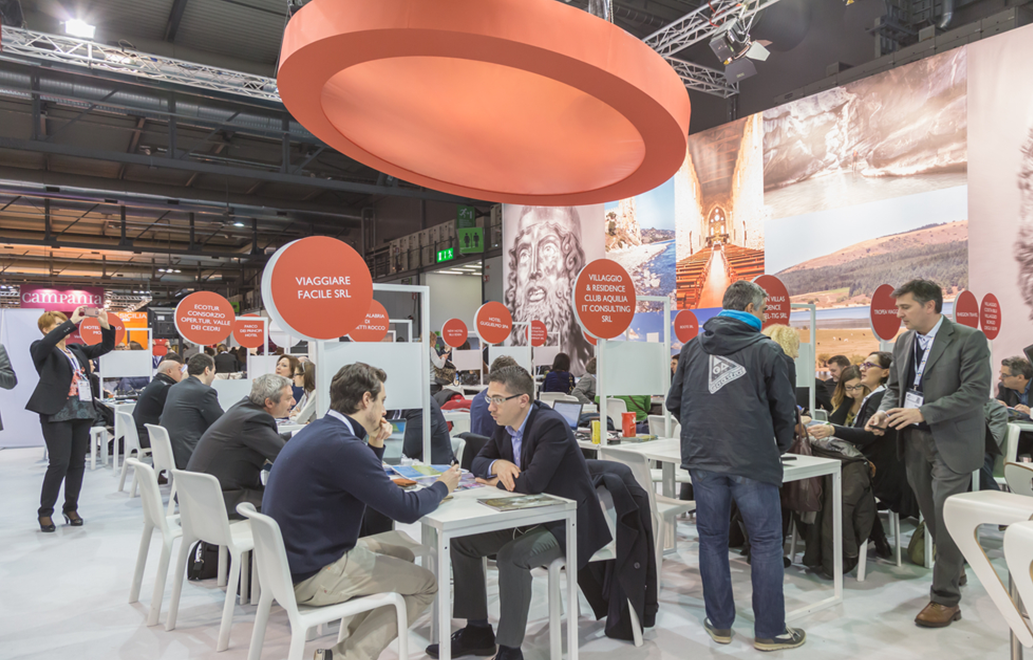How to enhance your event’s success with expert event production charlotte
How Event Production Works: A Comprehensive Look at the Refine
Event production is a facility and organized procedure that needs cautious planning and execution. It starts with developing clear purposes and recognizing the target market. Each step, from budgeting to venue selection, plays a critical duty in making certain success. As the procedure unfolds, numerous aspects need to align seamlessly. Yet, the subtleties of this complex operation frequently go unnoticed. What are the essential stages that add to an unforgettable event?

The First Drawing Board
When starting on event production, careful planning is important to ensure an effective end result. The first drawing board acts as the structure for all succeeding initiatives. Throughout this stage, event manufacturers need to specify the event's function and goals clearly. Determining the target audience helps customize the experience and messaging, assuring significance and engagement.Producers need to likewise think about the event layout, whether it be in-person, digital, or hybrid, as this will certainly influence different logistical elements. Choosing an appropriate date and location is critical, as it influences ease of access and availability.Furthermore, constructing a dependable team is basic for splitting duties and simplifying interaction. Establishing a timeline with milestones warranties all jobs are completed on schedule. This phase includes complete research, including recognizing prospective challenges and designing methods to reduce risks. Inevitably, a well-structured preliminary planning stage sets the tone for an effective event production trip.

Budgeting and Source Allowance
In event production, effective budgeting and source allocation are essential for success - event production charlotte. Establishing economic specifications sets the structure for all subsequent decisions, while source distribution approaches guarantee that every part of the event is effectively supported. With each other, these components assist keep control over expenditures and enhance using available sources
Developing Financial Parameters
Developing economic parameters is crucial to the success of any kind of event production, as it sets the structure for reliable budgeting and resource allowance. This procedure starts with defining the general spending plan, which encompasses all elements of the event, consisting of place costs, event catering, and advertising and marketing. By recognizing offered funds, event organizers can focus on expenses and allocate resources appropriately. Furthermore, it is important to carry out detailed marketing research to anticipate prospective expenses and recognize financing resources, such as sponsorships or ticket sales. Establishing clear financial parameters likewise aids in danger administration, enabling coordinators to reserve contingency funds for unexpected costs. Eventually, a well-defined budget plan works as a roadmap, directing the event production team towards accomplishing their objectives while preserving monetary control.
Resource Distribution Strategies
Effective resource circulation strategies are important for taking full advantage of the effect of an event while sticking to spending plan restraints. Effective event production calls for a thorough approach to budgeting and source appropriation. Planners have to focus on essential aspects such as place, wedding catering, and innovation, ensuring that funds are allocated to locations that improve attendee experience. An in-depth spending plan should outline anticipated expenses and recognize locations for potential cost savings, such as working out with suppliers or exploring sponsorship chances. Additionally, tracking expenditures throughout the preparation process helps stop overspending. By using calculated resource circulation, event producers can supply a memorable experience while keeping financial duty, eventually adding to the total success of the event.
Venue Option and Logistics
Selecting the appropriate location is important to the success of any type of event, as it sets the stage for the total experience. Venue option involves examining various elements, consisting of capacity, availability, and location. Coordinators have to consider the target market and the nature of the event, ensuring the venue lines up with the event's goals.Logistics play a significant duty in this procedure, involving plans for seats, audiovisual equipment, and catering services. An appropriate place should help with smooth circulation for participants and staff, improving engagement.Additionally, examining possible venues for facilities like auto parking, toilets, and fire escape is essential for safety and security and ease. The timeline for securing the venue is also vital, as prominent places might schedule promptly - event production charlotte. Comprehensive planning and timely execution can ultimately add to a smooth event experience, making place option and logistics basic parts of effective event production.
Creative Principle Development
While the venue sets the physical phase, imaginative idea development forms the event's identification and narrative. This process starts with recognizing the event's function and target audience, allowing event producers to formulate an engaging style that resonates with attendees. Conceptualizing sessions commonly include diverse viewpoints, promoting ingenious ideas that straighten with the event's goals.Once a style is established, aesthetic aspects such as color schemes, signage, and decor are designed to boost the general atmosphere. Narration techniques might likewise be integrated to develop an engaging trip for individuals, guaranteeing a remarkable experience. Furthermore, factors to consider relating to home entertainment, tasks, and interactive elements are straightened with the selected concept, strengthening the theme throughout the event.Ultimately, efficient creative idea development assurances that every aspect of the event works cohesively, leaving a lasting perception on participants and satisfying the event's purposes. This foundational job lays the foundation for subsequent preparation and execution phases.
Teaming up With Vendors and Distributors
Successful event production pivots on reliable cooperation with suppliers and suppliers. Selecting trusted partners, discussing agreements efficiently, and making sure prompt deliveries are vital action in this process. Each of these elements adds substantially to the overall success and smooth execution of go to this website an occasion.
Picking Reliable Allies
How can event coordinators ensure a smooth production experience? Picking dependable partners is important in accomplishing this objective. Event organizers have to conduct comprehensive research study to determine suppliers and distributors with a proven performance history of excellence. This includes examining references, evaluating profiles, and reviewing customer responses. Organizers should prioritize companions that demonstrate professionalism, timely interaction, and a desire to work together. Building strong relationships promotes count on and makes it possible for quick problem-solving throughout the event. Additionally, it is beneficial to choose neighborhood suppliers that recognize the venue and local logistics. Inevitably, an effective event pivots on the synergy between coordinators and their companions, making certain that every element of production runs smoothly and efficiently.
Negotiating Agreements Properly
Efficient settlement of contracts is an essential action in the collaboration between event planners and their vendors and providers. This procedure includes clear communication of assumptions, deliverables, and timelines. Organizers ought to conduct detailed research study on market rates and industry criteria to establish a standard for settlements. It is very important to develop a collective atmosphere, motivating open dialogue about terms, rates, and possible contingencies. Organizers must also focus on understanding the vendor's capabilities and restrictions to align their needs successfully. Adaptability can bring about equally advantageous contracts, promoting lasting connections. Crafting distinct contracts that consist of specific performance metrics can assist assure responsibility, inevitably leading to effective event implementation and complete satisfaction for all events involved.
Guaranteeing Prompt Distributions
Timely shipments are crucial for the smooth execution of any type of event, calling for diligent partnership in between planners and their suppliers and suppliers. Effective communication is essential, as it aids develop clear expectations concerning shipment timetables, quantities, and specific demands. Coordinators often create comprehensive timelines to lay out critical milestones, guaranteeing all parties continue to be straightened throughout the procedure. Normal check-ins with suppliers can aid recognize possible hold-ups early, permitting for aggressive remedies. Additionally, building strong connections with reputable vendors promotes count on and responsibility, which can result in better solution and prioritization. By prioritizing these collaborative efforts, planners can decrease disturbances, therefore boosting the general effectiveness of event production and guaranteeing that all necessary like this materials and services get here as intended.
Advertising and Promotion Strategies
While arranging an occasion, the success of marketing and promotion approaches can significantly influence presence and interaction. Reliable strategies usually include a mix of digital advertising and marketing, conventional advertising and marketing, and grassroots outreach. Using social media sites platforms permits real-time interaction and targeted advertising and marketing, reaching particular demographics properly. Email advertising projects can further involve potential guests with tailored content and reminders.Collaborations with influencers or market leaders can additionally boost trustworthiness and expand reach. Producing interesting web content, such as videos or blogs, aids to create buzz and suffer passion leading up to the event. In addition, leveraging early-bird discounts and special rewards can incentivize ticket purchases.Promoting through conventional networks, such as posters or neighborhood media, remains relevant, particularly in community-focused occasions. A comprehensive technique that incorporates multiple techniques assurances optimum exposure and involvement, inevitably contributing to the event's success and the creation of a memorable experience for guests.
On-Site Implementation and Administration
On-site implementation and management are important elements that figure out the general success of an event. Effective coordination throughout the event guarantees that all aspects straighten with the planned agenda. Event managers oversee logistics, including supplier control, tools setup, and visitor solutions. Keeping track of timelines and attending to any type of unforeseen problems are essential for maintaining a seamless experience.The staff plays a considerable duty, as trained personnel are in charge of numerous jobs such as enrollment, info dissemination, and technical support. Communication amongst team participants is important; it cultivates a collaborative setting and allows fast resolution of challenges.Additionally, security procedures have to be abided by, protecting the well-being of all attendees. Post-event evaluations are additionally part of on-site management, providing understandings for future improvements. By concentrating on these elements, event producers can develop memorable experiences that fulfill or surpass attendee assumptions while achieving the event's purposes.
Often Asked Inquiries
Exactly how Do I Choose the Right Event Style?
Choosing the ideal event theme entails thinking about the target market, event purpose, and place. Researching existing trends and collecting input from stakeholders can also influence imaginative ideas that reverberate and develop an unforgettable experience.

What Are Common Mistakes in Event Production?
Usual blunders in event production commonly consist of insufficient planning, inadequate interaction among employee, budget mismanagement, neglecting to take right into account the target market's requirements, and failing to perform a detailed post-event assessment for future improvements.
Just How Can I Determine Event Success?
To measure event success, one can assess guest complete satisfaction, engagement degrees, budget plan adherence, and post-event comments. Key performance indications, such as ticket sales and social networks interactions, likewise offer useful insights right into overall performance.
What Should I Do if It Rains on the Event Day?
In case of rain on the day, the coordinator ought to implement backup plans, such as safeguarding outdoors tents or relocating tasks inside. webpage Interaction with attendees concerning modifications is important to guarantee a smooth experience regardless of weather difficulties.
Just How Can I Guarantee Attendee Engagement Throughout the Event?
